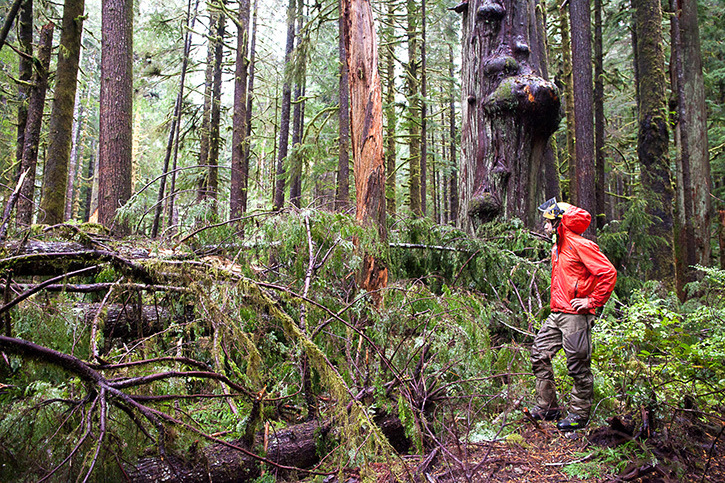
Avatar Grove boardwalk damaged by windstorm
"Hurricane-force winds ripped through the area on Oct. 15 resulting in 30 trees crashing down over the Avatar Grove Trail in the lower grove area, damaging sections of the boardwalk. None of the grove’s famed ancient Western redcedars or Douglas fir fell during the storm. The Ancient Forest Alliance completed the boardwalk a week before the storm, in a project that took three years and involved hundreds of volunteers."
Avatar Grove Boardwalk damaged by windstorm – Completion launch delayed until Spring
Damage to the famed Avatar Grove Boardwalk in the Lower Grove due to the hurricane-force winds during the October 15 storm has delayed the completion launch of the Avatar Grove Boardwalk until next spring. The Ancient Forest Alliance had literally just completed the boardwalk a week before the storm, after 3 years of hard work involving a hundred volunteers, and was about to hold a ribbon-cutting ceremony last week to announce its completion – but now the launch will be delayed until the boardwalk can be repaired and the trail cleared, which will take several months due to the wet winter weather. The winter storm resulted in at least 30 trees crashing down over the Avatar Grove Trail in the Lower Grove, damaging sections of the boardwalk. Luckily none of the grove’s famed giant redcedars or Douglas-firs fell during the storm.
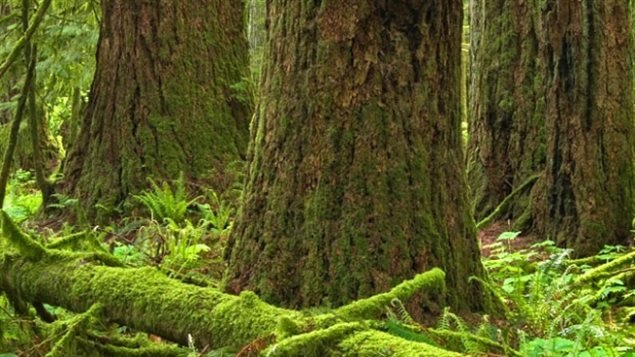
Des tours guidés pour sensibiliser les Chinois à la protection des forêts de C.B.
Here is Radio Canada's article in French on the Ancient Forest Alliance's planned old-growth tours in Mandarin and Cantonese for the half a million Chinese-speakers in the Lower Mainland.
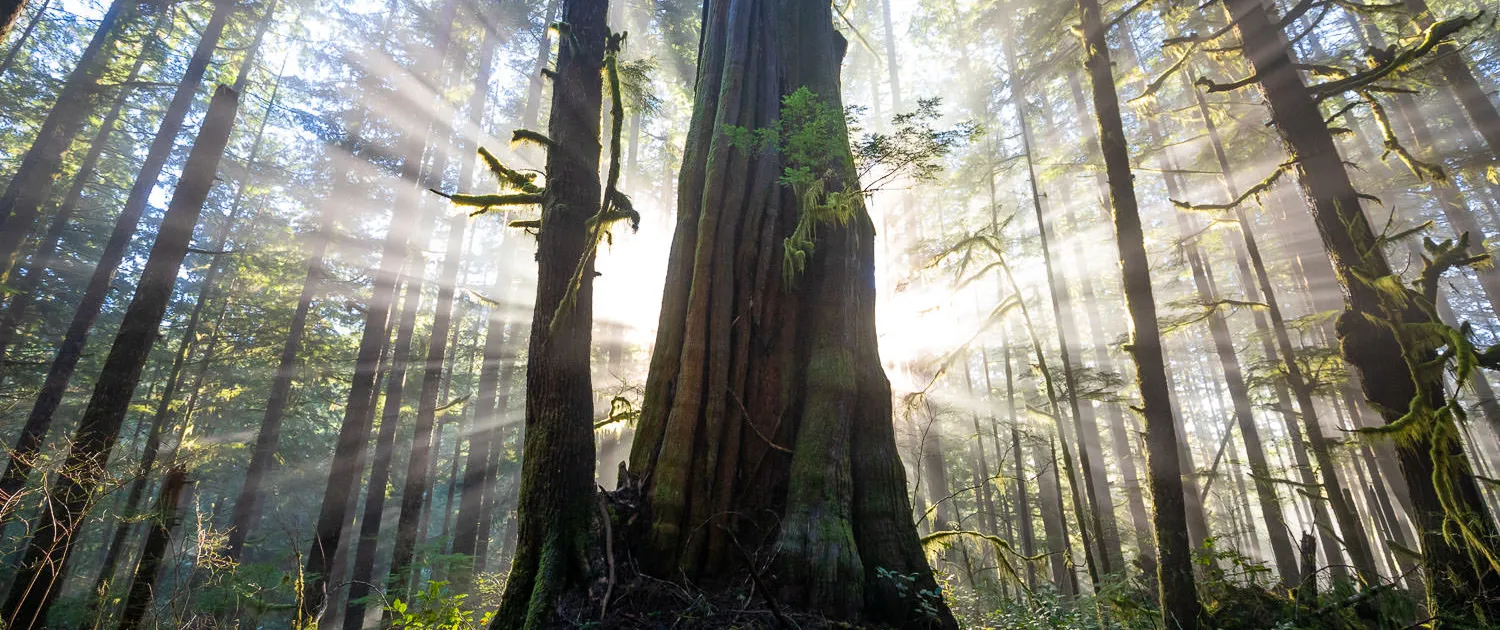
CTV News: Chinese-Language Ancient Forest Tours
Here's the CTV News video coverage of the Chinese-Language Ancient Forest Tours program that we're developing, which aims to engage the half a million Chinese speakers in the Vancouver region to diversify and broaden the movement to protect old-growth forests!

CBC News: Chinese-Language Ancient Forest Tours
Here's the CBC News video coverage of the Chinese-Language Ancient Forest Tours program that we're developing, which aims to engage the half a million Chinese speakers in the Vancouver region to diversify and broaden the movement to protect old-growth forests!
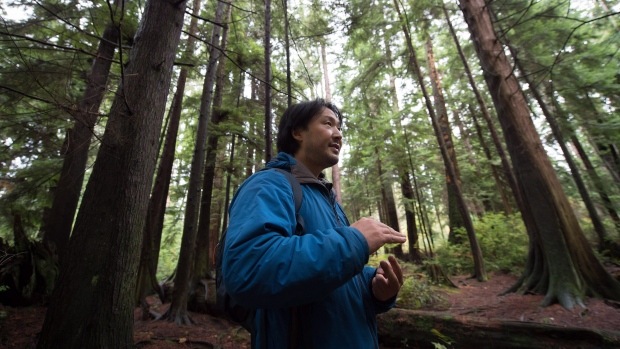
Forest tours offered in Chinese to promote conservation in B.C.
Here's a new Canadian Press article about our Chinese-language Ancient Forest Tours, which aims to engage the half a million Chinese speakers in the Vancouver region to diversify and broaden the movement to protect old-growth forests, which in recent times now also includes businesses and chambers of commerce, unions and forestry workers, local governments in the UBCM and AVICC, and naturalist clubs across the province calling for old-growth protection.
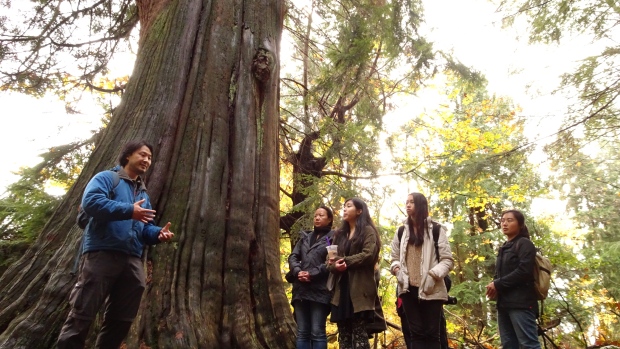
Ancient Forest Alliance offering Stanley Park tree tours in Mandarin, Cantonese
Here's a CBC piece about the launch of our Chinese-Language Ancient Forest Tours (at least the training for the volunteers - the actual public tours in Mandarin and Cantonese are still at least a couple months away). Take note that these will simply be public nature walks (not protests or anything like that!), and it's through the AFA that tour participants can later choose to find out how they can take action to protect other areas - but the emphasis on the tours is to simply see the big trees and learn about the ecology, plants, animals, and conservation status of old-growth forests in Mandarin and Cantonese. Also note that we're not anti-logging, but rather we support sustainable second-growth forestry but are against the logging of endangered old-growth forests, such as those on Vancouver Island and in the southwest mainland etc.
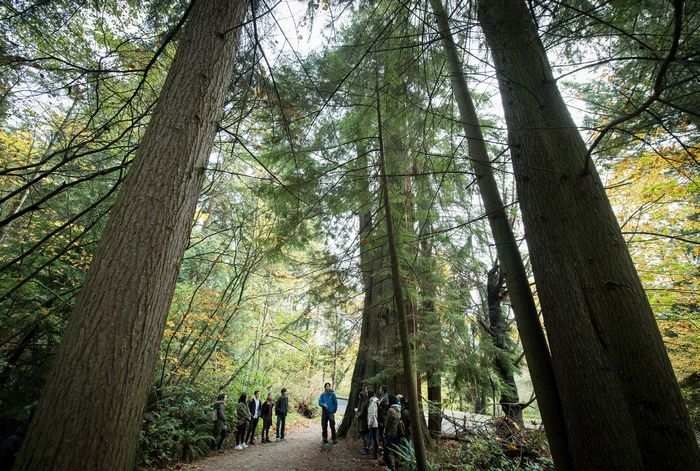
Chinese-language forest tours to educate more B.C. residents on conservation
Here is today's Vancouver Sun article about the Chinese-Language Ancient Forest Tours program that we're developing. Volunteer educators who we are training about old-growth ecology and conservation issues will be doing the tours starting in Stanley Park at dates to be announced. Note that the tours are also open to those who are interested in learning Mandarin or Cantonese.
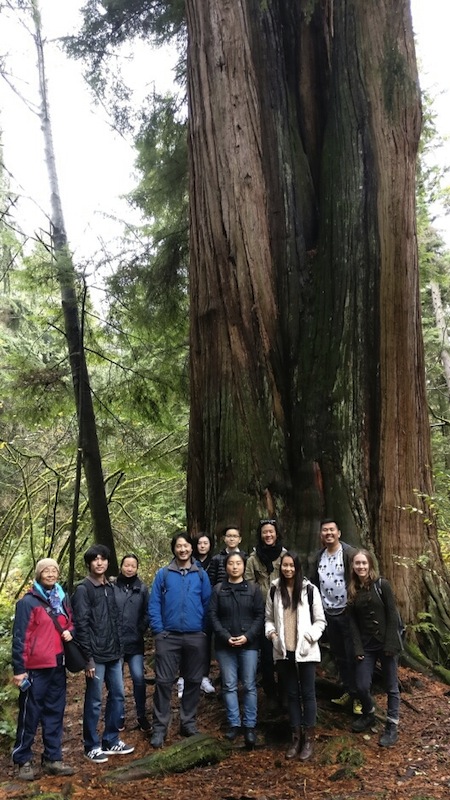
Chinese-Language Ancient Forest Tours – Training for Educators Begins in Stanley Park
Today the Ancient Forest Alliance (www.AncientForestAlliance.org), the Hua Foundation (www.HuaFoundation.org) and the Stanley Park Ecology Society (www.StanleyParkEcology.ca) launched a new educational program that will eventually target the half a million Chinese-speakers in the Lower Mainland about the ecology and conservation of BC's old-growth forests.
The organizations held their first "training for educational tour guides", volunteers who are interested in potentially leading old-growth nature walks in Mandarin or Cantonese, in Stanley Park. The Ancient Forest Alliance's Ken Wu and the Hua Foundation's Kevin Huang guided the dozen volunteers along some of the most spectacular old-growth trails in the park, the Tatlow and Lovers Trails where 14 feet wide, 800 year old redcedars still stand, and explained in English about the plants, animals, ecology, and related conservation issues regarding old-growth forests in British Columbia. The specialized terminology will subsequently be translated by skilled volunteers into Chinese for the participants to study.
As there are half a million people in the Lower Mainland who identify their mother tongue as Chinese, this program aims to help raise the awareness and level of engagement of a major segment of BC's population on the ecology and conservation needs of old-growth forests.
At a future date to be announced, once there is a trained core of nature guides, there will be public tours in Mandarin and Cantonese in the old-growth forests of Stanley Park and potentially in the Walbran Valley, Avatar Grove, Eden Grove, and Echo Lake Ancient forests.
If you can speak Mandarin or Cantonese and would like to participate in this program, please contact Ken Wu at info@ancientforestalliance.org
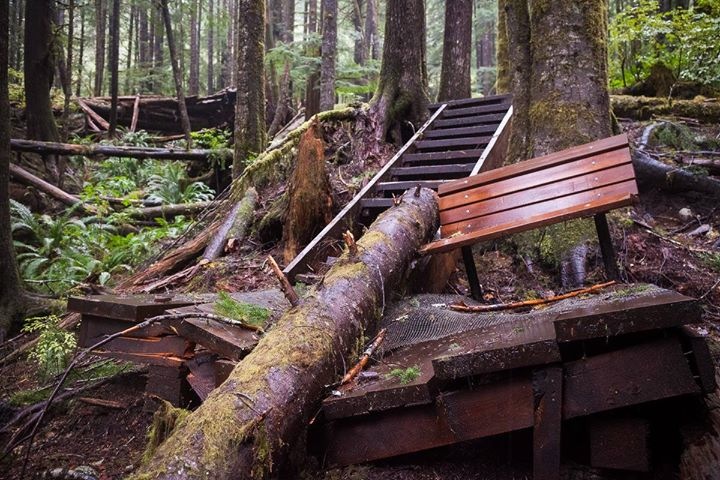
Avatar Grove Boardwalk Damaged by Winter Storm – Lower Grove Closed for Now
Last weekend's hurricane-force winds in Port Renfrew resulted in at least 30 trees (luckily none of the spectacular giants) crashing down over the Avatar Grove trail in the Lower Grove, damaging sections of the boardwalk (see photos HERE). This is unfortunate, as the Ancient Forest Alliance had literally just completed the boardwalk a week before after 3 years of hard work and was about to hold a ribbon-cutting ceremony to launch its completion. We now have to clear the trail and fix the boardwalk, steps, and platforms in the Lower Grove before we re-open it, which will take several months given the wet winter weather that is descending upon us. For now the Upper Avatar Grove remains open. Thank you for your patience and your support! We look forward to launching the fixed and completed boardwalk in the spring!
Take Action
 Donate
Donate
Support the Ancient Forest Alliance with a one-time or monthly donation. Send a Message
Send a Message
Send an instant message to key provincial decision-makers.Get in Touch
Earth-Friendly Web Design by Fairwind Creative
- Home
- About Us
- Our Work
- Ancient Forests
- Recent News
- Photos & Media
- Map of Gallery Regions
- Themes
- Videos
- Inland Rainforest
- Mainland
- Haida Gwaii
- Sunshine Coast
- Sunshine Coast: Powell River
- Vancouver Island South
- VI South: Caycuse Watershed
- VI South: Mossy Maples
- VI South: Port Renfrew
- VI South: Port Alberni
- VI South: Walbran Valley
- Vancouver Island Central
- VI Central: Clayoquot Sound
- VI Central: Cortes Island
- VI Central: Tahsis
- Vancouver Island North
- Take Action
- Store
- Donate
